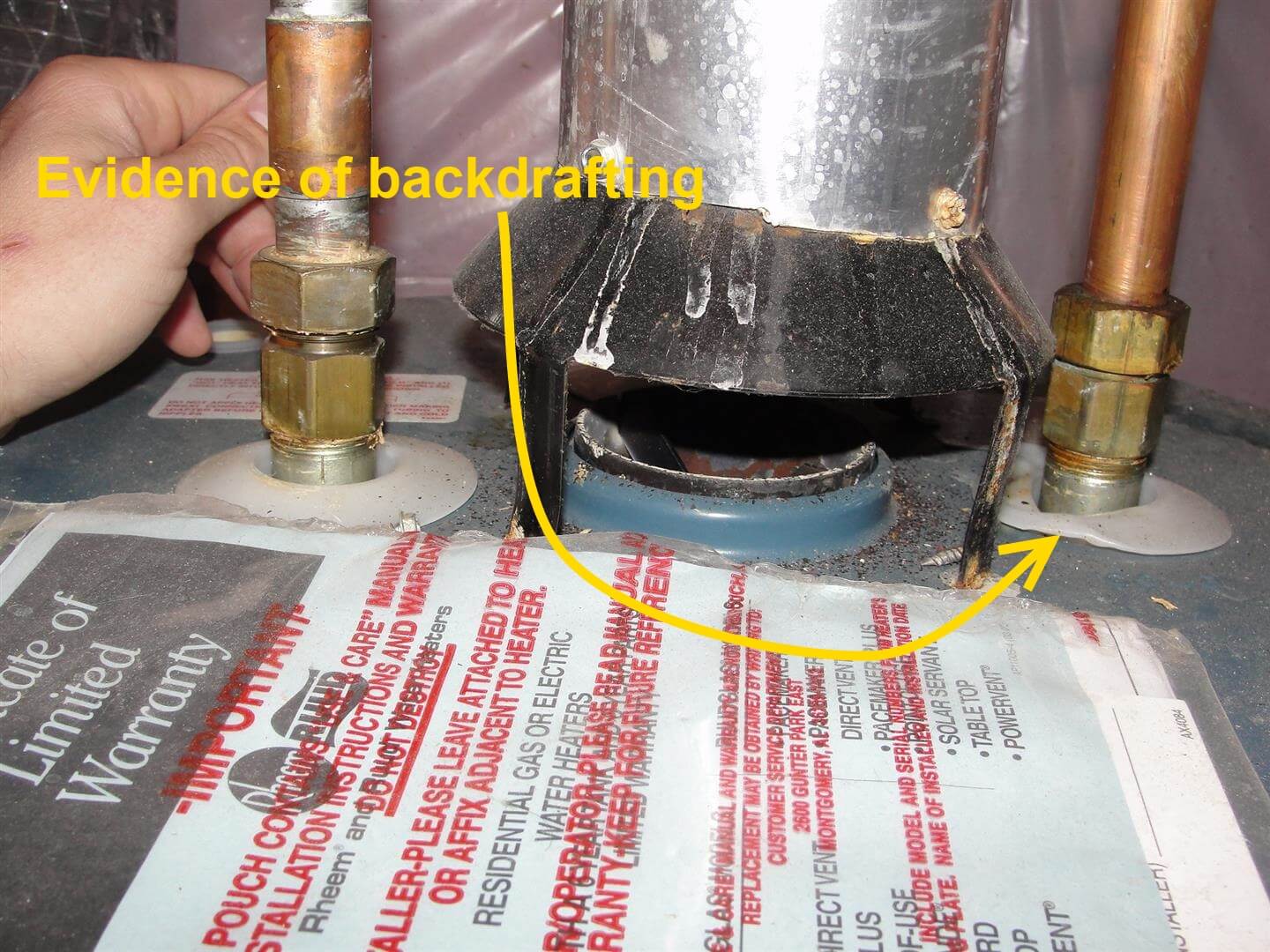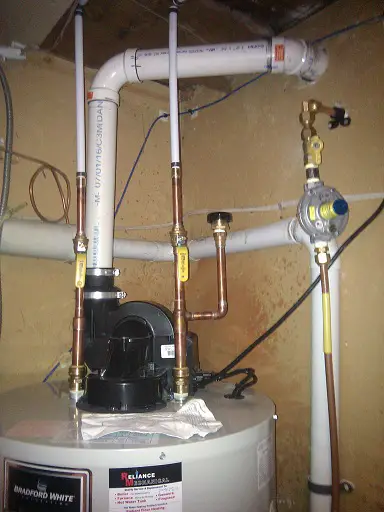If you have a gas water heater, it’s important to know that there should never be a gas smell coming from the vent. If you do smell gas, it’s important to take action immediately. The first thing you should do is open all the doors and windows in your home to get ventilation going.
Then, you need to shut off the gas at the main valve. Once the gas is shut off, call your local utility company or the fire department so they can come and check things out.
If you have a gas water heater, it’s important to know that there may be times when you smell gas coming from the vent. This is usually nothing to worry about and is simply the result of the burner igniting. However, if you continue to smell gas or if the smell is strong, you should contact your gas company immediately.
Testing Water Heater Spillage: Backdrafting Combustion Fumes from Natural Draft DHW
Should Water Heater Exhaust Smell Like Gas?
Water heaters that use natural gas to heat the water can sometimes produce exhaust that smells like gas. This is usually not a cause for concern, as the smell is typically harmless and will dissipate quickly. However, if the smell persists or is accompanied by other symptoms, it could be an indication of a problem with the water heater or venting system.
In either case, it’s important to have the unit inspected by a qualified technician to ensure safe operation.
Why Does My Vent Smell Like Gas?
If you notice that your vent smells like gas, it could be cause for concern. Natural gas is odorless, so utility companies add a chemical called mercaptan to give it a distinct smell. This way, if there’s a gas leak, you’ll be able to tell right away.
There are a few reasons why your vent might smell like gas. It could be due to a problem with your furnace or water heater, or there could be an issue with your home’s ventilation system. If you suspect a gas leak, it’s important to take action right away and call your local utility company.
In most cases, a smelly vent is not cause for alarm. However, if you’re ever unsure about what you’re smelling, it’s always better to err on the side of caution and contact a professional.
Should a Gas Vent Smell Like Gas?
If you smell gas near a vent, it is important to leave the area immediately and call your natural gas utility or the fire department. Never try to repair a gas leak yourself. If the vent is outdoors, open all doors and windows to air out the house before evacuating.
If the smell of gas is inside and there are no windows or doors nearby, go outside and open them before evacuating.
How Do I Know If My Water Heater is Leaking Gas?
If you think your water heater is leaking gas, the first thing to do is shut off the gas supply. Then, open a window and call a plumber or the fire department to come and check it out.
There are several ways to tell if your water heater is leaking gas.
One way is to listen for a hissing sound near the water heater. Another way is to look for signs of excessive condensation on or around the water heater. Finally, you can use aGas Leak Detector test kitto test for methane or other combustible gases in the air near your water heater.
If you confirm that your water heater is leaking gas, don’t try to fix it yourself! Gas leaks are extremely dangerous and should only be fixed by a qualified professional.

Credit: structuretech.com
Water Heater Smells Like Gas But No Leak
If you have a water heater that smells like gas but there is no leak, it is likely due to a build-up of sediment in the tank. Over time, sediments can accumulate in the bottom of the tank and create an unpleasant smell. In addition, when sediments are heated, they can release harmful gases into the air.
If you notice a gas smell coming from your water heater, it’s important to take action immediately and contact a qualified technician to clean out the tank.
Symptoms of Gas Leak from Water Heater
If you have a gas water heater, there are several things that could go wrong and cause a gas leak. The most common problem is with the pilot light. If the pilot light goes out, it can allow gas to escape into the home.
Other problems include a cracked heat exchanger or faulty valves. If you smell gas, it’s important to evacuate the area immediately and call your utility company. They will be able to shut off the gas and make repairs as needed.
Water Heater Exhaust Smell
If you’ve ever noticed an unpleasant smell coming from your water heater, it’s most likely due to a build-up of sulphur in the unit. While this isn’t dangerous, it can be quite nuisance. Thankfully, there are a few things you can do to get rid of the smell.
The first step is to check the anode rod. This is a metal rod that helps protect your water heater from corrosion. Over time, the anode rod can degrade and release sulphur into the water.
If this is the case, simply replacing the anode rod should solve the problem.
If the anode rod looks fine, then the next step is to clean out your water heater’s burner assembly. This is where all the hot gases are produced during combustion and can sometimes become clogged with soot and other debris.
A good way to clean this area is by using a wire brush or vacuum cleaner attachment.
Once you’ve cleaned out the burner assembly, you should also flush out your water heater tank itself. This will help remove any residual sulphur that may be left behind.
To do this, simply turn on all the cold water faucets in your home and open up the drain valve at the bottom of your unit. Let all of the water run out until it becomes clear again.
Conclusion
If you have a gas water heater, it’s important to know that sometimes a small amount of gas may escape from the vent during normal operation. This is not cause for alarm, but if you smell gas coming from the vent, you should open a window and call your gas company right away.
If you have a gas water heater, it’s normal for some amount of gas to escape from the vent during regular use.
However, if you start smelling gas coming from the vent, open a window and call your local gas company immediately.

